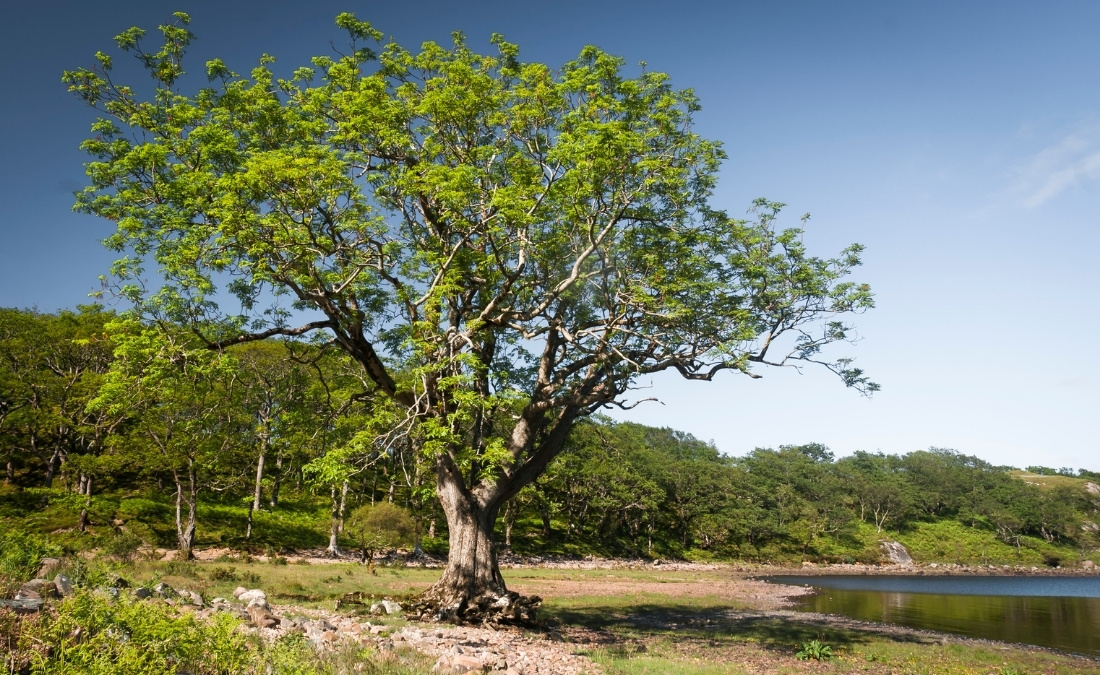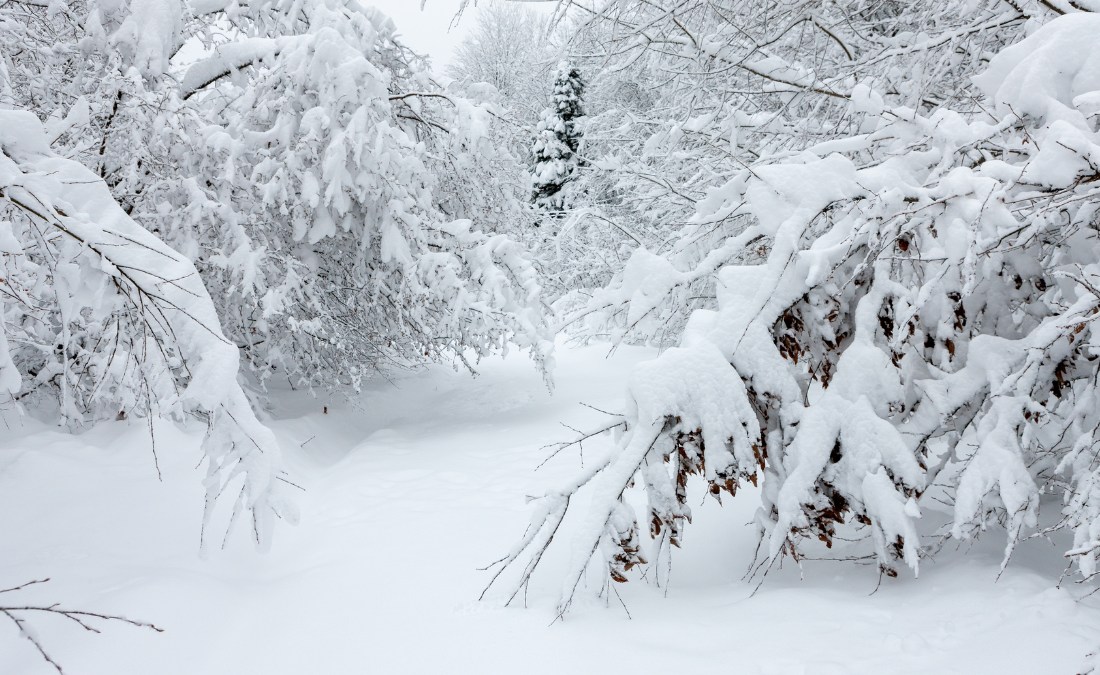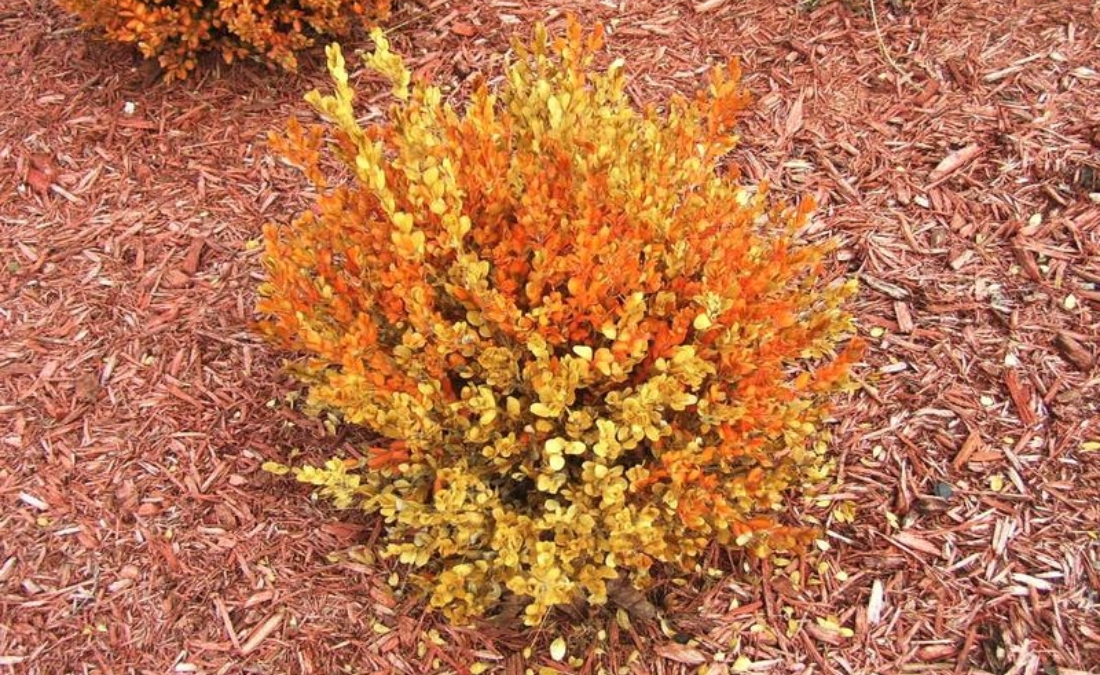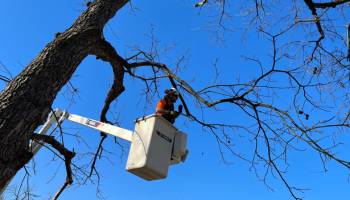How to Choose the Right Tree for Your Des Moines Property
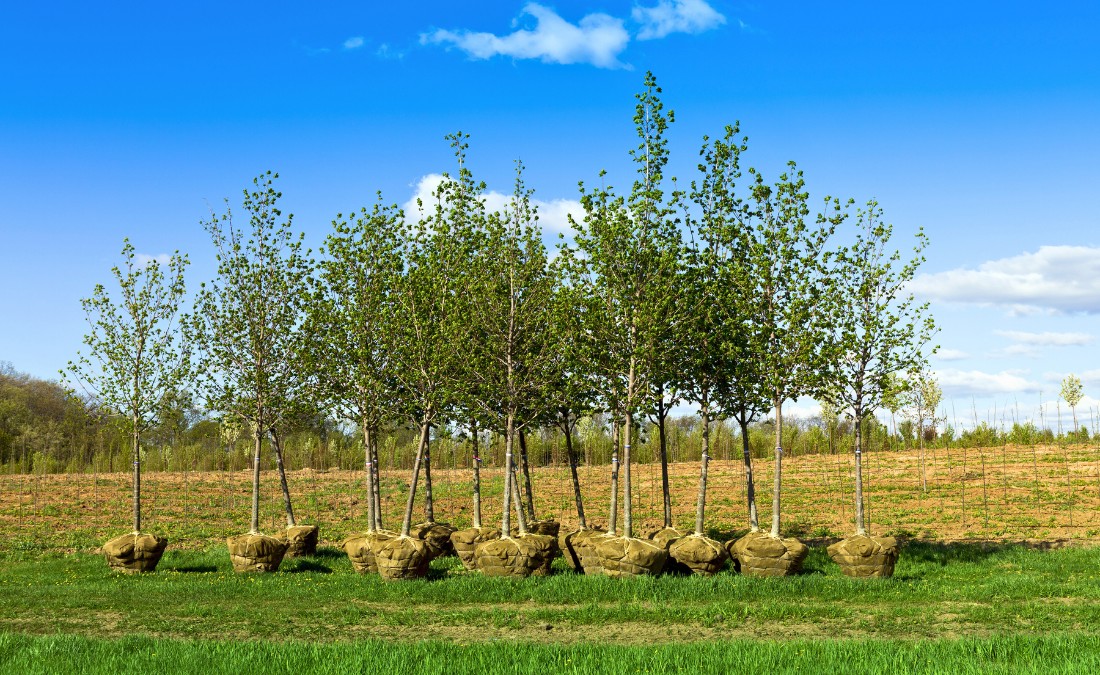
From size to soil needs, not every tree fits every yard. Arbor Masters explains how to choose the right tree that will thrive in Des Moines conditions.
Planting a tree might seem as simple as picking one you like and digging a hole – but choosing the right tree for your Des Moines property takes a little more thought. From soil conditions and sunlight to the tree’s mature size and purpose, there are several factors to consider before planting. Here’s what you need to know to make a smart choice and give your new tree the best chance to thrive.
Key Takeaways:
- Consider a tree’s mature size and shape before planting to avoid future issues with structures, other trees, or power lines.
- Choose trees that can withstand Des Moines’s climate conditions, including severe storms and temperature extremes.
- Ensure your soil type can support tree growth, and conduct a soil test to determine if your soil needs amendments.
- To select the right tree species, determine your landscaping goals (adding spring beauty, creating privacy, introducing winter interest, lowering cooling costs, or increasing property value).
4 Things to Consider When Picking the Right Tree for Your Des Moines Property
In Des Moines, we have a unique ecosystem that can support certain types of trees while others may struggle. Before digging a hole, consider these four things:
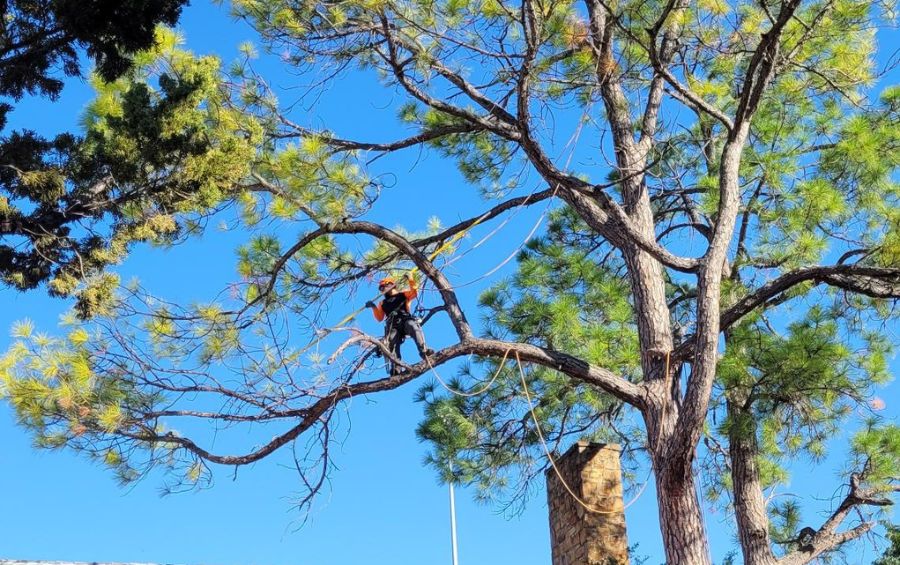
Be careful when planting a tree too close to a house, as it could interfere with the structure.
1. Size of the Tree at Full Maturity
When you buy a sapling from a nursery, it may look like it can fit anywhere on your property. It is also difficult to picture a tree at full maturity, especially if you don’t have any similar species nearby to use as a frame of reference.
“One of the biggest mistakes homeowners make when they plant a tree is to put it in the wrong place. Planting a sapling too close to another tree, a structure, or under power lines may force you to remove it at some point. The tree will interfere with the structure and get tangled up in power lines, creating a dangerous situation for the tree and the things around it.” – Joshua Dalton, Arbor Advisor at Arbor Masters
Another thing to consider about a tree is its shape. Some trees, like maples, will spread out wide, while others, like dogwoods and redbuds, have much smaller profiles. Additionally, some evergreens can look like columns with appropriate pruning.
Even if you didn’t plant a tree under utility lines, it can still get tangled up in wires if it grows wide enough. This will necessitate frequent pruning or tree removal to avoid bringing the wires down in a storm.
2. Climate Conditions
Des Moines’ climate provides numerous challenges for any trees you attempt to grow here. Of course, anyone who has lived in Des Moines for long enough will remember the massive damage from the 2020 derecho that produced 100 mph winds and extensive tree damage.
Even when the storms are not historic, the frequent thunderstorms we see in our area can cause extensive damage to trees.
When you pick a tree, ask at the nursery about how strong they are. Some trees are much sturdier than others. Some of the species with weak wood that you will want to avoid in Des Moines include:
- Silver maples
- Bradford pears
- Willows
- Cottonwoods
The range of temperatures can also be stressful for trees, as our region sees temperatures in the 90s during the summer that plummet well below freezing in the winter months.
To help homeowners determine what plants they can grow, the United States Department of Agriculture created hardiness zones as a quick guideline for what trees will survive in a yard. Des Moines is in Hardiness Zone 5. Before picking a tree, research what hardiness zone it thrives in and ensure it can stand up to the cold winter temperatures.
3. Soil Type in Your Yard
Your soil plays a major role in whether a tree will take root and thrive – or struggle to survive. Fortunately, most properties in Des Moines and areas north of the city sit on loamy Wisconsin glacial till soil, which is well-suited for growing a wide variety of trees.
But even good soil may lack the nutrients young trees need to establish strong roots. Before planting, make sure your soil drains well and has the right balance of organic matter. In some cases, adding soil amendments or giving your tree a boost with fertilization can make all the difference in helping your new tree thrive.
PRO TIP: Conducting a soil test is the best way to tell if your soil needs amendments. However, the kits you get at hardware stores are often unreliable. While the Iowa State Extension Service does not provide soil testing, they do have resources for homeowners to learn how to collect a soil sample and where to send it for professional testing.
4. Landscape Needs
Even if a tree has all the qualities to thrive in your landscape, that doesn’t mean it is the right choice for your yard. Before you purchase a tree, think about your goal for what the tree will do for your landscape. Some of the goals for planting trees include:
- Adding Beauty in the Spring: It can take some time for some trees to start looking their best in the spring. Planting spring-flowering ornamentals will give your landscape an aesthetic boost early in the season.
- Creating Privacy: Trees can act as natural barriers or fences that can block sightlines with your neighbor’s property. The best trees for this job are typically evergreens that never lose their foliage.
- Introducing Winter Interest: Winter can be a boring time to look at most deciduous trees after they lose their leaves. To add some winter interest to your yard, plant evergreens or trees with unique bark that will still draw the eye without any leaves.
- Lowering Cooling Costs in the Summer: When you plant them strategically, trees can reduce your cooling costs by up to 35 percent in the summer. The best trees for this are large shade trees like oaks and maples.
- Increasing Property Value: Trees increase the value of your property if you ever try to sell it, as prospective buyers are usually excited to see mature and healthy trees. Choose long-lived shade species for the best results to increase property value.
Frequently Asked Questions About Tree Planting in Des Moines
To help you understand why you should plant a tree and how to take care of them, we’ve answered some of the common questions homeowners have about tree planting.
How do you take care of your newly planted tree in Des Moines?
Some general tips for caring for a newly planted tree include:
- Water regularly for the first few months after transplanting, and continue to water it frequently for the first two years of its life.
- Place a layer of mulch around that is two to four inches deep and does not touch the root flare.
- Prune dead or broken branches as soon as you plant a sapling; try to prune every spring for the first five years to shape a tree.
Why is it important to plant new trees in Des Moines?
Trees provide several benefits for you, such as increasing your home’s value or decreasing your cooling costs. But they also benefit our ecosystem by giving mammals a food source and birds a place to rest. In the wake of the derecho that killed many of our trees, tree planting has become even more critical in Iowa.
What trees should I plant in Des Moines?
While the exact tree you plant will depend on the size of your yard and your needs, some recommended species include:
- River birch
- Red maple
- White oak
- American linden
- Eastern redbud
- Flowering dogwood
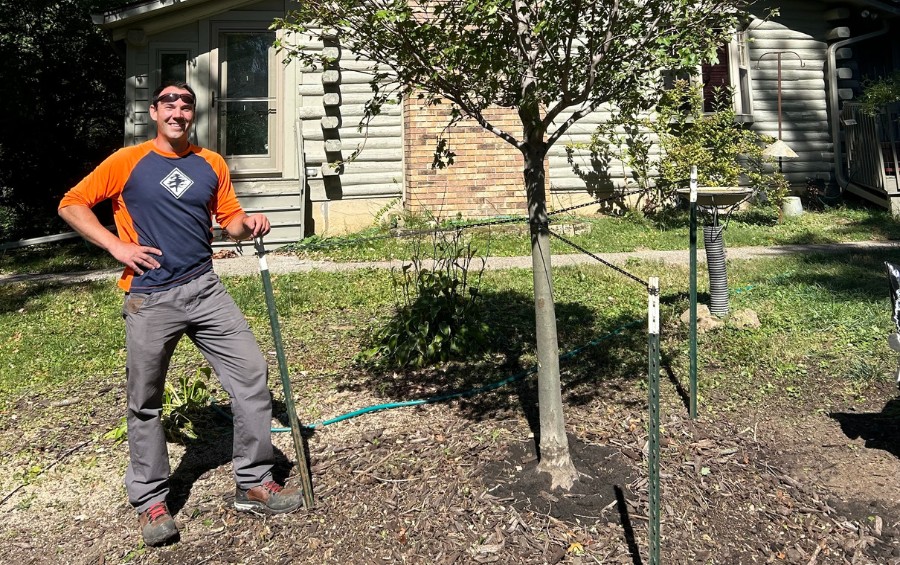
Arbor Masters Can Help Care for Your Newly Planted Trees
Picking the right tree for your landscape is just half the battle, as you’ll need to provide continued care for it as it works to establish itself in your yard. Without regular pruning, watering, and more, your sapling may not survive. For help with all your trees, trust the expert team at Arbor Masters of Des Moines.
Our Des Moines team includes ISA Certified Arborists, who bring their knowledge to every job they take on. They can examine your young tree, provide recommendations on how to care for it, and perform perfect pruning every time. Call us today at 515-218-2025 or request a quote online.
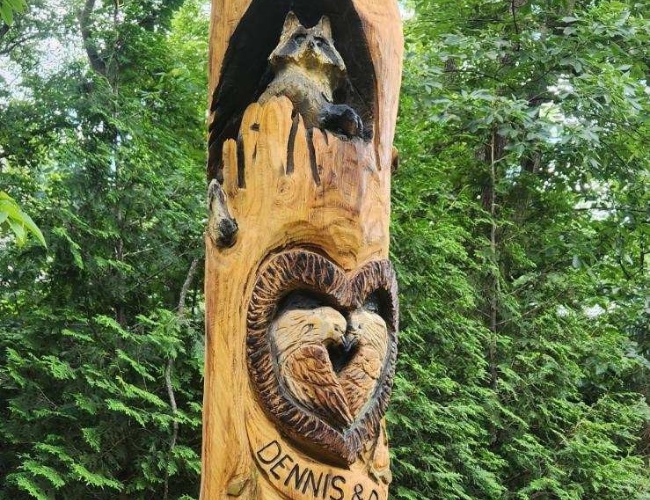
Get the latest local news, tree care tips, special offers, and company updates directly to your inbox! It's easy to subscribe and there's no spam - we promise.
"*" indicates required fields


